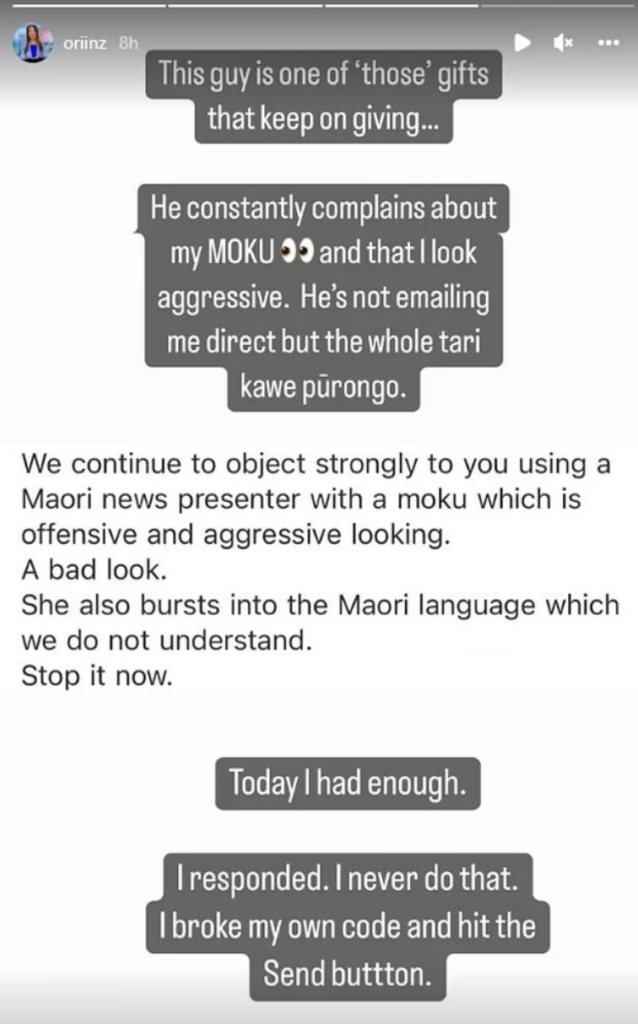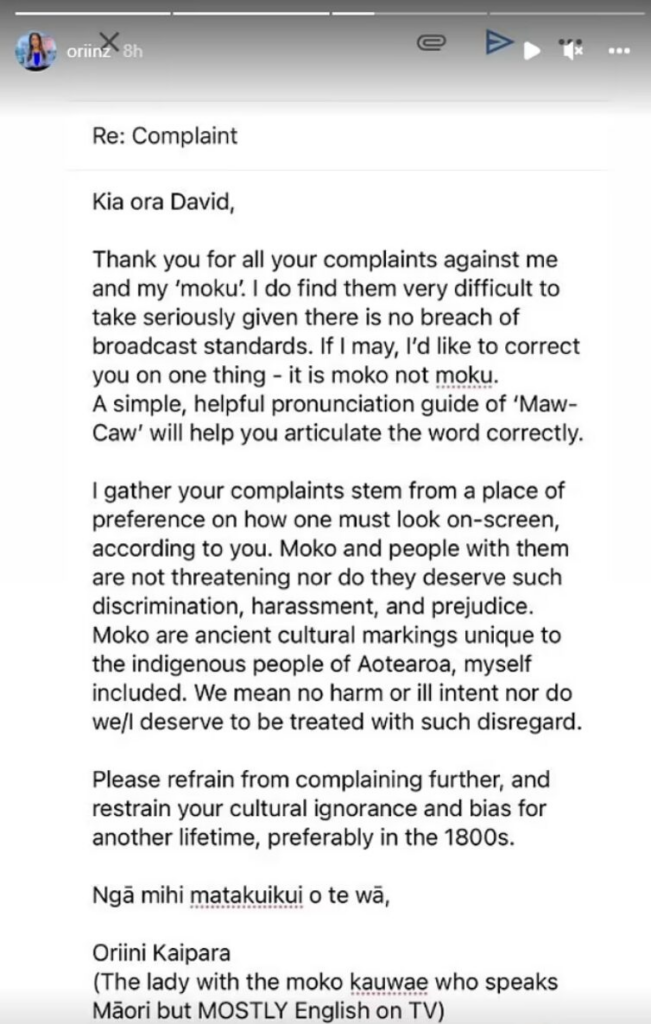A television presenter adorned with a traditional Māori face tattoo has gracefully responded to troll comments from a viewer, reaffirming pride in her cultural heritage and identity.
Some people argue that facial tattoos should only be on the body, while others appreciate the cultural meaning of them.
Oriini Kaipara, 41, was the first Māori woman to wear a moko kauae as a newsreader on New Zealand’s Newshub. She’s a trailblazing TV presenter who made history!
The Māori people in New Zealand see moko kauae as really important symbols of their culture and who they are. These face tattoos are usually put on the lips and chins and show a woman’s family ties, role as a leader in her community, and respect for her ancestors, position, and skills.

But, even with all the praise, a person named David wasn’t happy with Kaipara’s moko kauae and sent an email to Newshub to share his thoughts.
He said that having a Māori newsreader with a moku [moko] is offensive and scary. It’s not good. He also mentioned that she speaks in Māori, which they don’t understand. They want it to stop immediately.
Despite David’s mean comments, Kaipara courageously confronted the problem directly by posting screenshots of the messages on her Instagram story and replying with kindness and poise.
Today I was so done. I replied. I never do that. I went against my own rule and clicked send,” she posted on Instagram with a picture of David’s message.

Kaipara told David in an email that she couldn’t take his complaint seriously because there was no violation of broadcast standards.
She also wanted to make sure he knew the correct spelling of “moko”, since David had mistakenly written it as “moku”.
In her email, Kaipara said: “I think your complaints are because you want people to look a certain way on screen. Moko and their friends are not scary and they don’t deserve to be treated unfairly, bullied, or judged.”
She said we didn’t mean any harm and we don’t deserve to be treated badly. She asked them to stop complaining and to keep their cultural ignorance and bias to themselves, maybe back in the 1800s.

Even though David was really mean, Kaipara said that most people actually say nice things about her, and there aren’t many mean trolls.
After she replied to David’s complaint, Kaipara talked to the New Zealand Herald about the importance of having more Māori advocates. She said, “The fact that some people are bothered by my existence shows why we need more Māori advocates in important roles in every area.”
In conclusion, Kaipara’s strong reaction shows how important it is to be proud of your culture and stand strong when faced with tough times. She’s encouraging others to be proud of who they are and stand up against unfair treatment.
What are your thoughts on this story? Share your opinions in the comments!



